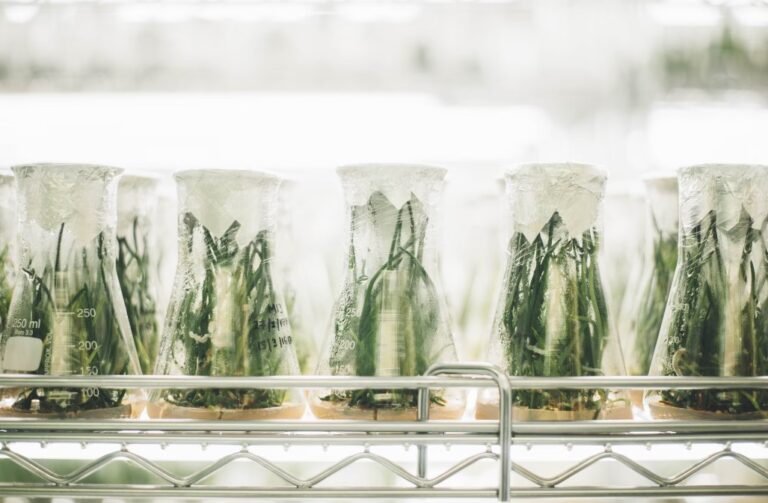The food that most of us consume every day now is at risk of running short in the next few years. The future of food is an interesting way to think about how sustainability, innovation and technology can come together to reshape existing food practices.
As time passes, we step into a world where advanced and sophisticated changes influence what we consume and the way we produce and consume food.
Table of Contents
Future challenges to our food and eating habits
The future of food and eating habits presents a range of challenges that society will need to address in the coming years. Here are a few key points on the future challenges to our food and eating habits:
Growing population
An alarming UN statistic shows that our population will see a 10 billion increase by the year 2050. This is alarming because as we keep growing in numbers, the land, water and energy see an increasing shortage, leading to an insurmountable global food shortage.
Another data by UNEP also says that to feed everyone; the world needs to produce 56% more food to cater to that 10 billion population. The Earth, with its generous supply of natural resources, will eventually be depleted if we are not mindfully using it.
Impact of global warming
Rising temperature and greenhouse gas emissions isn’t helping anyone but itself. Our food supplies will be badly affected by temperatures rising from 2.5 to 10 degrees Fahrenheit over the next 100 years.
This threatening development will lead to food availability and food prices rising, in turn causing a disruptive food shortage all over the world. In addition, the deforestation of 6.7 million acres of land for cattle raising is already contributing to the growing problem.
Disparities in food access
For a long time now, our world has witnessed the unequal distribution of wealth, economic imbalance and, most importantly, uneven distribution of food.
Even though there is enough food for everyone in the world, access to the same has been made largely unavailable. Ten and millions of people go hungry every day, and lack of availability and access is the reason why.
Diet-related health issues
There are numerous health issues arising from lack of proper diet, heart diseases, diabetes and obesity contributing largely to the lot.
The future does hold a beacon of hope for minimising diet-related health issues. For example, data analytics and genetics might come up with uniquely tailored dietary plans.
Resource scarcity
Everything we consume as a sustenance derives its origin from Earth’s natural sources. Energy, land, water and food are more likely to deplete if overused.
Improper distribution of food is an issue that poses a serious threat along with the non-judicious use of limited resources.
What will food be like in future?
The food will change with time as per the requirements of the environment. Many factors will influence this change.
These factors include population growth, global warming, food security challenges, and the need for more sustainable food sources. Here are the future foods, which will be an alternative to present-day fooding.
1. Insect-based proteins
The World Economic Forum has predicted that our 10 billion population for the year 2050 won’t be able to get an adequate supply of protein for everyone. This is where insect-based protein comes in. And the best part is it is way cheaper and more sustainable than farming plants and animals.
2. Plant-based protein
Plant-based protein is available abundantly, and some studies suggest they are way healthier and lighter than protein sourced from meat. Beans, legumes, oats, barley lentils, etc., are a great way to boost your immunity and increase your daily protein intake.
They are also considered to be super foods by most vegetarians. The important thing seems to be the fact that 20 or 30 years from now. The world will be replacing protein derived from meat with these sustainable and eco-friendly plant-based proteins.
3. Cultured meat
Cultured meat is derived from cellular agriculture, which is becoming popular for all the right reasons. As predicted by various studies, if our population spikes to 10 billion by 2050, the demand for lab-grown meat will increase. As we slowly run out of resources, this is a sustainable and safer replacement than traditional meat produced in factory farms.
Read also: Lab-grown meat: all you need to know about its pros and cons
4. Sustainable seafood
Sustainable seafood is a practice that prioritizes and minimizes dangerous environmental impacts and guarantees good and right working conditions.
So, the produce which comes from fisheries practising sustainable seafood positively impacts the Earth’s condition in the long term. This, in turn, ensures us and the rest of the species can thrive and nourish.
5. Allergen-free nuts
Every other person in the world suffers from one or the other allergy due to nuts. For safer consumption, scientists are developing techniques to remove the proteins which are responsible for triggering allergies.
This development also contributes to environmental sustainability. Some types of nuts can be altered to flourish in unique climatic conditions with fewer resources.
Can we prevent and present the current fooding nature?
The rise in population, global warming and unethical practice of procuring meat have negatively impacted our environment. However, as the consensus becomes more mindful and aware of its impact on Earth, our home, the change is being witnessed slowly. People are taking accountability for the environmental impact.
Thus, one can see a beacon of hope. Individuals, eventually all of the population, are going for a sustainable consumption. This, in turn, will reshape the food landscape as we know it for the better.












